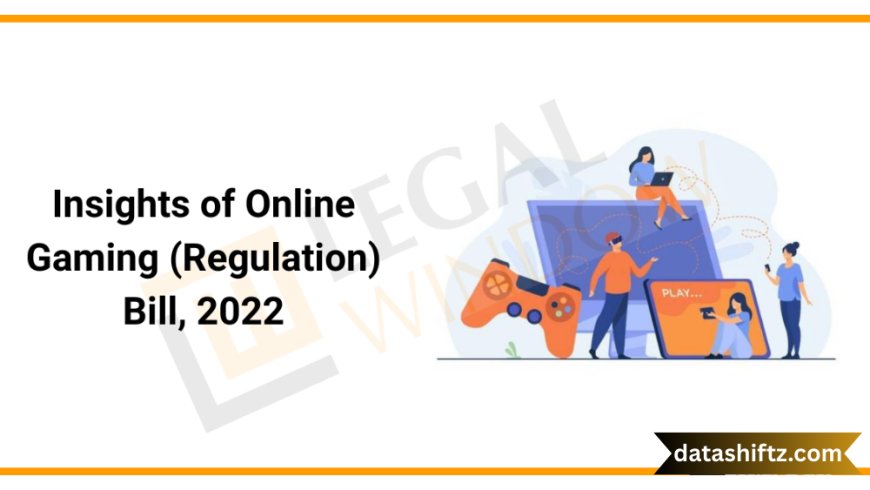Online Gaming Bill 2025: Regulating India’s Digital Gaming Frontier

As the online gaming industry in India booms—driven largely by fantasy sports, mobile gaming, and esports—the government seeks to forge a balanced legal framework through the Online Gaming Bill 2025. This legislation aims to curb compulsive money-based gaming practices, while simultaneously legitimizing and promoting esports and socially positive games. Introduced in Parliament after Cabinet approval, the bill marks a turning point in how India views and governs gaming.
Why Now? The Case for Regulation
A Rapidly Growing Yet Unregulated Sector
The Indian online gaming industry has expanded exponentially, with over 450 million gamers, a market value of around ₹23,000 crore (~US$2.8 billion) in 2023, and projections pointing to nearly ₹70,000 crore by 2027. This includes fantasy cricket, mobile titles, esports, and more—backed by significant venture capital and influential celebrity marketing.
Risks Highlighted: Addiction, Financial Distress, Regulatory Vacuum
Concerns around addiction, especially among youth, and high-profile cases involving mental distress and financial ruin have drawn attention. Moreover, effects of illegal or offshore gambling, money laundering, and ambiguous state-level legislation have led to a fragmented and inadequate governance landscape
Key Provisions of the Bill
What Is Banned—A Complete Ban on Online Money Games (Heading 3)
“Online money games” are defined broadly—spanning both chance- and skill-based games requiring monetary stakes (entry fees, deposits) for a reward. The bill prohibits:
-
Offering or facilitating such games
-
Advertising or promoting them
-
Processing related payments (banks and UPI blocked)
Encouraged Categories—Esports & Social/Educational Games
In contrast, the bill actively promotes:
-
Esports: Recognized as legitimate competitive sport; with frameworks for tournaments, training academies, and federated structure
-
Social and educational gaming: Safe, age-appropriate games aligned with cultural and digital literacy goals
Regulatory Architecture & Enforcement
-
A National Online Gaming Commission (NOGC) or dedicated regulator will be established
-
All platforms must be licensed; licensing violations carry dire penalties
-
Government officials may search, seize, and make arrests under sections of the IT Act, 2000 or Bharatiya Nyaya Sanhita
Penalties & Legal Consequences
Stiff Penalties for Offenses
| Offense | Penalty |
|---|---|
| Offering/facilitating money games | Up to 3 years jail and/or ₹1 crore fine |
| Advertising money games | Up to 2 years jail and/or ₹50 lakh fine |
| Processing payments for money games | Up to 3 years jail and/or ₹1 crore fine |
| Repeat offenses | Up to 5 years jail and/or ₹2 crore fine |
| Corporate executive liability | Held accountable unless due diligence shown |
Banks and Platforms Under Watch
Financial institutions are barred from processing related transactions. Platforms will be blocked under the IT Act, underscoring a crackdown through digital and financial channels.
Industry Reactions & Potential Impact
Job Losses, Investor Risks & Offshore Migration
Industry leaders warn that banning money games could:
-
Cost over 2 lakh jobs
-
Collapse about 400 startups
-
Erode ₹20,000 crore in tax revenues
-
Lose ₹25,000 crore in foreign investment
Users may shift to illegal offshore platforms, raising fraud risks
Regulatory Overreach and Constitutional Concerns
Legal experts argue the Centre may have overstepped its jurisdiction since gambling regulation is a state subject. Courts have earlier upheld skill-based games as legal, adding to the bill’s constitutional complexity
Support for Regulation—but Calls for Balance
Some see merit in regulation, but stress the need to differentiate between genuine skill-based platforms and exploitative betting apps—advocating for “smart regulation,” not blanket bans
Summary Table: Online Gaming Bill 2025 Overview (Heading 2)
| Provision | Details |
|---|---|
| Ban on Money Games | Includes both skill and chance with monetary stakes |
| Promotion | Supports esports, social, and educational games |
| Regulatory Authority | National commission with licensing powers |
| Financial Controls | Bans on UPI/payments for real-money games |
| Penalties | Jail up to 5 years; fines up to ₹2 crore |
| Corporate Accountability | Directors/officers liable unless proven due diligence |
| Industry Concerns | Job losses, startup collapse, investor flight, offshore shift |
| Constitutional Debate | Federal vs state authority; skill vs chance games |
Key Takeaways
-
Clear Separation: Bans all games involving monetary stakes, irrespective of skill or chance.
-
Industry Pivot: Shift to cultivating a safe, skill-based gaming ecosystem.
-
Regulator-Centric Framework: Centralized authority for licensing and enforcement.
-
Deterrence via Penalties: Heavy fines and jail terms targeted at offenders and enablers.
-
Protective Intent: Aims to shield vulnerable users and curb exploitative platforms.
-
Economic Trade-offs: Potential economic fallout includes job losses and offline investment leakages.
-
Legal Scrutiny Ahead: Jurisdictional and constitutional validity likely to be challenged.
-
Need for Nuance: Stakeholders call for balanced regulation rather than sweeping prohibitions.
Conclusion
The Online Gaming Bill 2025 charts a new course for India's digital entertainment future. Balancing innovation and protection, it seeks to ban monetized gaming while championing esports and social games as constructive avenues for youth empowerment. If implemented with foresight and fairness, the bill could foster a safer, more sustainable gaming ecosystem.
However, industry backlash, constitutional ambiguity, and the potential economic consequences cannot be ignored. As the debate shifts to Parliament, its final shape will determine whether Indian gaming is safeguarded or sidelined.






























